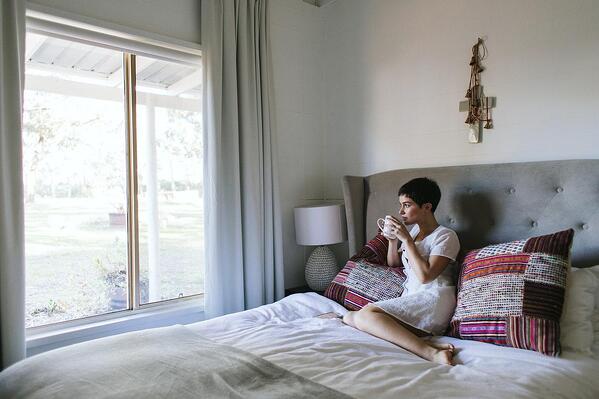
Content of Energy Drinks
When it comes to what energy drinks are made of, it’s important to mention the two most prominent ingredients, caffeine and sugar. Most energy drinks contain about 300mg of caffeine per can, but some contain even more than that. With about 400mg of caffeine a day being a safe dose, a can of such a drink per day should not be a problem for a healthy person. As far as sugar is concerned, there are certain energy drinks that are packed with it, with up to 69g of sugar per serving. It’s important to note, though, that most manufacturers have been doing their best to lower the sugar content of their drinks, which is actually a positive change.
While added sugar may not be something that comes highly recommended, energy drinks contain other ingredients, such as ginseng, B vitamins or taurine, which are aimed at elevating your energy levels and making you feel more awake.
What They Do
The caffeine in energy drinks has the function of blocking adenosine buildup in our brain. Being that adenosine is a chemical that promotes sleep, the more of it our brain produces, the sleepier we get. Once caffeine does its job, this process is interrupted and we begin feeling alert and wakeful. Similarly, sugar is also meant to keep us awake, as taking high amounts of it can be overstimulating, making you feel like you’re ready to be physically and mentally active.
Drinks with high sugar content are something that may be perceived as useful early in the day, perhaps even in the early afternoon, but that can disrupt or even prevent sleep if you have them close to bedtime. This is especially true for those drinks that combine sugar with other reasonably potent stimulants, which isn’t rare. It’s for this reason that you should limit your energy drink intake to certain parts of the day and avoid reaching for them several hours before you go to bed.
The Healthier Options

In order to meet the demand of the market, especially the younger generations, who lead fast-paced lives and often need quick energy boosts to tackle the plethora of tasks that they have during the day, some manufacturers have created top-quality smart drinks. These rely less on caffeine and are loaded with nootropic supplements, which are known for their cognitive-enhancing effects while being safe to consume. Such drinks are advertised as having a positive effect on various aspects of your well-being, like enhanced cardiovascular health, improved vision, diminished inflammation and pain, and better hair.
In addition to this, some of the best ones contain specific ingredients that allow for more restful sleep. For instance, Gamma-Aminobutyric Acid or GABA, can advance sleep efficacy. Another good example is DMAE, a substance that supports better mood and memory, but also reduces hyperactivity and increases the production of acetylcholine, which helps regulate REM sleep. Such smart drinks are a more sensible option than other energy drinks, especially the zero-sugar ones.
When to Take Them
As already mentioned, it’s essential to avoid drinking these drinks a few hours before going to bed. Unlike some smart drinks, that contain no more than 128mg of caffeine, standard energy drinks can contain up to 360mg of it, which can create issues with your sleep cycle. This is because caffeine stimulates the central nervous system. As practical as this can be in the morning when you need to wake up, if you take one of these drinks in the evening or even late afternoon, you might be unpleasantly surprised when you eventually try to fall into slumber. Not only can caffeine in the energy drinks make it more difficult to fall asleep, but it can also reduce your sleep time, making it less sound and restful.
Consequently, you’ll feel drowsier, fatigued, and unable to focus the following day, as you’ve been deprived of deep sleep. If this makes you grab another energy drink, it could actually throw you into a vicious circle and even cause long-term sleep loss. Therefore, if you want to have an energy drink, do so as early as possible in the day, so as to prevent the negative impact these types of drinks can have on your sleep.
As with anything else, moderation is the key when energy drinks are concerned. Try to restrict your use of these drinks to your mornings or around noon, as that way they won’t influence your sleep as much.
Average sleep times are slipping below healthy recommendations and caffeine consumption is on an exponential rise. There seems to be a connection here. Based on the way sleep deprivation impacts hunger, it is no surprise that modern Americans get about 15% of their daily calories from fast food.
In 2015 the CDC released a report identifying the shocking fact that 100 million Americans are living with diabetes or prediabetes. Brenda Fitzgerald, MD, the Director of the Centers for Disease Control, acknowledges that this alarming statistic is complicated be the fact that “the majority [of the afflicted] don’t know it.”
The cocktail of sleep deprivation, caffeine consumption, and unhealthy diets all seem to be connected to negative outcomes and disease. So how do we move forward?
We slow down.
Step one in promoting wellness is to take a breath. Slow down. Try to see the full picture and examine our own habits first. Then examine the systems in which we operate. Then adjust or create systems so that wellness is not a luxury, but the norm.
We will have to confront some difficult truths along the way. It won’t always be easy, but it will be worth it.
What is Your Next Step?
If you cannot seem to get to the bottom of what triggers your anxiety and sleepless nights, call Alaska Sleep Clinic today. We are the only sleep lab in the state with a Cognitive Behavior Therapist specializing in sleep medicine, Dr. Angie Randazzo. Watch Dr. Angie’s KTUU “Moms Everyday” Segment on how stress affects sleep by clicking the video below.












